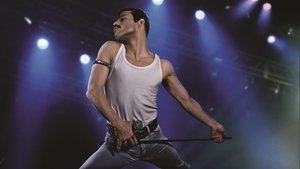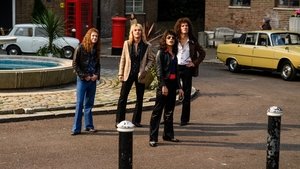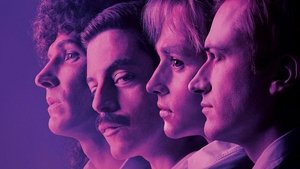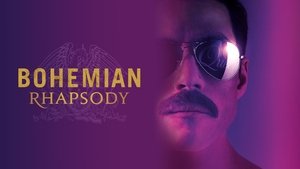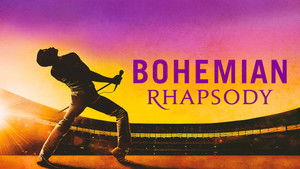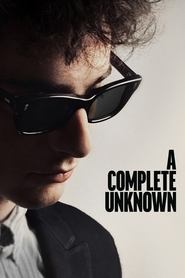The long-awaited Queen biopic Bohemian Rhapsody has finally reached the big screen after being in development for the better part of a decade. It felt like eons ago when Sacha Baron Cohen agreed to star as rangy vocalist Freddie Mercury in what was believed to be an outrageously edgy and risqué examination of the controversial frontman. However, three years after Sacha Baron Cohen’s announcement in 2010, and significantly further into the film’s push to production, creative differences between the living band members and the film’s star finally reached a boiling point. Sacha Baron Cohen walked away from the project after refusing to settle for a PG-13 version of Mercury’s life told against the backdrop of Queen’s legendary rise to stardom, but the producing band members ultimately won out as that’s exactly what we’re given with Bryan Singer’s frustratingly tame and wildly inaccurate musical biopic.
It’s the early 1970s and a young Farrokh Bulsara (Rami Malek) escapes from his faith-driven household by attending local rock shows. And upon crossing paths with a talented group of musicians who ironically lose their singer, Farrokh steps out from the shadows and offers a generational voice to their musical abilities. From there, Queen quickly climbs up the rock and roll ranks lending its hand to Farrokh’s name change (to Freddie Mercury) and a host of reckless inhibitions that ultimately lead to the singer’s sad and tragic demise.

Artistic freedom is at a premium as Bohemian Rhapsody completely rewrites historical fact in this soulless cycle through Queen’s greatest hits. Everything from the film’s portrayal of the band’s epic reunion to perform at 1985’s Live Aid concert to when Freddie discovers his terminal diagnosis couldn’t be further from the truth. Instead, Anthony McCarten’s hollow screenplay navigates through Queen’s formation and explosion onto the rock scene with amateurish nuance and half-hearted dramatics. Yet, leading star Rami Malek does build an interesting main character while adequately handling his role as the flamboyant singer. I do believe the hype is reasonably overblown, though. Malek is fine but far from sensational, and I legitimately question his odds of earning an Oscar Nomination at this point. Malek certainly isn’t aided by his co-stars or script, as both are instantly forgettable. Bohemian Rhapsody struggles with giving in to tired clichés. And every time you begin to hope that the film will turn a corner and offer some semblance of originality, you’re instantly reminded that every scene is masquerading as an artificial checkpoint rather than serving as an organic vessel into the unpredictable mind of vocal icon Freddie Mercury and those around him. On a brighter note, I will say that Bryan Singer’s phenomenal shot leading into Wembley Stadium as Queen prepares for its 20-minute set at Live Aid is absolutely remarkable. In fact, Rami Malek perfectly imitates Mercury’s mannerisms from that iconic performance and it helps close out the film with a strong, much-needed finish. There are moments of promise scattered throughout Bohemian Rhapsody, yet Bryan Singer’s work mostly remains a dull and overtly mild depiction of an anything-but-docile superstar.
-
 NameRami MalekCharacterFreddie Mercury
NameRami MalekCharacterFreddie Mercury -
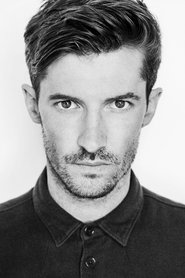 NameGwilym LeeCharacterBrian May
NameGwilym LeeCharacterBrian May -
 NameBen HardyCharacterRoger Taylor
NameBen HardyCharacterRoger Taylor -
 NameJoseph MazzelloCharacterJohn Deacon
NameJoseph MazzelloCharacterJohn Deacon -
 NameLucy BoyntonCharacterMary Austin
NameLucy BoyntonCharacterMary Austin -
 NameAidan GillenCharacterJohn Reid
NameAidan GillenCharacterJohn Reid -
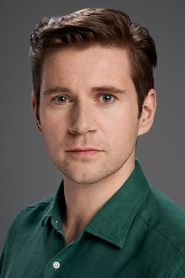 NameAllen LeechCharacterPaul Prenter
NameAllen LeechCharacterPaul Prenter -
 NameTom HollanderCharacterJim Beach
NameTom HollanderCharacterJim Beach -
 NameMike MyersCharacterRay Foster
NameMike MyersCharacterRay Foster -
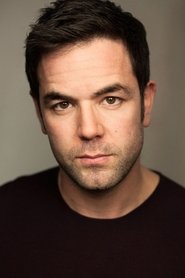 NameAaron McCuskerCharacterJim Hutton
NameAaron McCuskerCharacterJim Hutton -
 NameMeneka DasCharacterJer Bulsara
NameMeneka DasCharacterJer Bulsara -
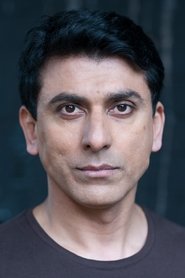 NameAce BhattiCharacterBomi Bulsara
NameAce BhattiCharacterBomi Bulsara -
 NamePriya BlackburnCharacterKashmira Bulsara
NamePriya BlackburnCharacterKashmira Bulsara -
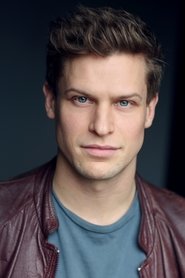 NameMax BennettCharacterDavid
NameMax BennettCharacterDavid -
 NameDermot MurphyCharacterBob Geldof
NameDermot MurphyCharacterBob Geldof -
 NameDickie BeauCharacterKenny Everett
NameDickie BeauCharacterKenny Everett -
 NameJack RothCharacterTim Staffell
NameJack RothCharacterTim Staffell -
 NameNeil Fox-RobertsCharacterMr. Austin
NameNeil Fox-RobertsCharacterMr. Austin -
 NameJess RadomskaCharacterCheryl
NameJess RadomskaCharacterCheryl -
 NameMichelle DuncanCharacterShelley Stern
NameMichelle DuncanCharacterShelley Stern -
 NameRoss GreenCharacterReporter 1
NameRoss GreenCharacterReporter 1 -
 NameBruce MackinnonCharacterReporter 2
NameBruce MackinnonCharacterReporter 2 -
 NameJoshua HiggottCharacterReporter 3
NameJoshua HiggottCharacterReporter 3 -
 NamePat LallyCharacterReporter 4
NamePat LallyCharacterReporter 4 -
 NameWilliam OwenCharacterReporter 5
NameWilliam OwenCharacterReporter 5 -
 NamePhilip Andrew TruempiCharacterReinhold Mack
NamePhilip Andrew TruempiCharacterReinhold Mack -
 NameTim PlesterCharacterRT Baker
NameTim PlesterCharacterRT Baker -
 NameFelipe BejaranoCharacterBrazilian Crewman
NameFelipe BejaranoCharacterBrazilian Crewman -
 NameKieran HardcastleCharacterHeathrow Baggage Handler
NameKieran HardcastleCharacterHeathrow Baggage Handler -
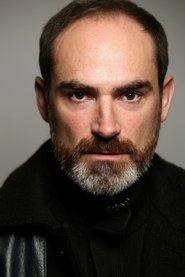 NameMartin OelbermannCharacterGerman TV Journalist
NameMartin OelbermannCharacterGerman TV Journalist -
 NameIan Gabriel DumdumCharacterHospital Doctor
NameIan Gabriel DumdumCharacterHospital Doctor -
 NameMatt GreenwoodCharacterYoung Man at Clinic
NameMatt GreenwoodCharacterYoung Man at Clinic -
 NameRoyce CroninCharacterTV Director
NameRoyce CroninCharacterTV Director -
 NameJames MacLarenCharacterA & R Man
NameJames MacLarenCharacterA & R Man -
 NameAndrew BowermanCharacterSmile Audience Member
NameAndrew BowermanCharacterSmile Audience Member -
 NameDrew P.CharacterLive Aid Organiser
NameDrew P.CharacterLive Aid Organiser -
 NameSeren GibsonCharacterRoger's Girlfriend 1
NameSeren GibsonCharacterRoger's Girlfriend 1 -
 NameHonor HellonCharacterRoger's Girlfriend 2
NameHonor HellonCharacterRoger's Girlfriend 2 -
 NameRosy BenjaminCharacterDominique
NameRosy BenjaminCharacterDominique -
 NameLeila CrerarCharacterChrissie
NameLeila CrerarCharacterChrissie -
 NameKatherine NewmanCharacterVeronica
NameKatherine NewmanCharacterVeronica -
 NameAdam RaufCharacterYoung Farrokh Bulsara
NameAdam RaufCharacterYoung Farrokh Bulsara -
 NamePeter HoweCharacterEngineer at Studio
NamePeter HoweCharacterEngineer at Studio -
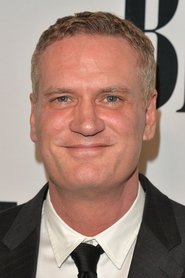 NameJohn OttmanCharacterLive TV Director
NameJohn OttmanCharacterLive TV Director -
 NameJames WallaceCharacterTechnical Director
NameJames WallaceCharacterTechnical Director -
 NameMatthew HoustonCharacterLarry Mullen, Jr. (uncredited)
NameMatthew HoustonCharacterLarry Mullen, Jr. (uncredited) -
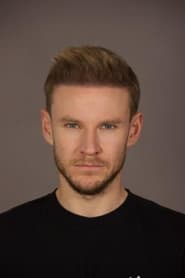 NameScott Morrison WatsonCharacterSteve (uncredited)
NameScott Morrison WatsonCharacterSteve (uncredited) -
 NameDevlin LloydCharacterFloor Manager (uncredited)
NameDevlin LloydCharacterFloor Manager (uncredited) -
 NameStefan KopieckiCharacterVideo Producer (uncredited)
NameStefan KopieckiCharacterVideo Producer (uncredited) -
 NameGarry SummersCharacterVoice Doctor (uncredited)
NameGarry SummersCharacterVoice Doctor (uncredited) -
 NameMatthew FredricksCharacterFreddie's Lover (uncredited)
NameMatthew FredricksCharacterFreddie's Lover (uncredited) -
 NameIan Jareth WilliamsonCharacterNY Clubber / Freddie's Former Lover (uncredited)
NameIan Jareth WilliamsonCharacterNY Clubber / Freddie's Former Lover (uncredited) -
 NameAdam LazarusCharacterRaver (uncredited)
NameAdam LazarusCharacterRaver (uncredited) -
 NameJohanna TheaCharacterVIP Party Guest (uncredited)
NameJohanna TheaCharacterVIP Party Guest (uncredited) -
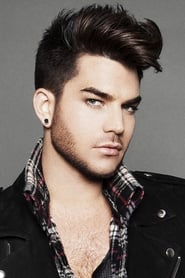 NameAdam LambertCharacterTruck Driver (uncredited)
NameAdam LambertCharacterTruck Driver (uncredited) -
 NameAndreea Helen DavidCharacterLive Aid Volunteer (uncredited)
NameAndreea Helen DavidCharacterLive Aid Volunteer (uncredited) -
 NameAdam James JohnstonCharacterAdam Clayton (uncredited)
NameAdam James JohnstonCharacterAdam Clayton (uncredited) -
 NameCharlotte SharlandCharacterJenny - Ealing Art College Student (uncredited)
NameCharlotte SharlandCharacterJenny - Ealing Art College Student (uncredited) -
 NameRay AndrewCharacterSound Engineer in Truck (uncredited)
NameRay AndrewCharacterSound Engineer in Truck (uncredited) -
 NameVincent AndrianoCharacterMeat Packer (uncredited)
NameVincent AndrianoCharacterMeat Packer (uncredited) -
 NameLasco AtkinsCharacterNYC Meat Packer (uncredited)
NameLasco AtkinsCharacterNYC Meat Packer (uncredited) -
 NameMichael BallardCharacterMeat Packer (uncredited)
NameMichael BallardCharacterMeat Packer (uncredited) -
 NameFiona BurtCharacterVIP Party Guest (uncredited)
NameFiona BurtCharacterVIP Party Guest (uncredited) -
 NameKiana Chang SigelCharacterCrazy Drummer (uncredited)
NameKiana Chang SigelCharacterCrazy Drummer (uncredited) -
 NameMilo Chang SigelCharacterCrazy Guitar Player (uncredited)
NameMilo Chang SigelCharacterCrazy Guitar Player (uncredited) -
 NameJonathan CheethamCharacterKissing Gay Man (1985) (uncredited)
NameJonathan CheethamCharacterKissing Gay Man (1985) (uncredited) -
 NameMichael CobbCharacterMichael Cobb
NameMichael CobbCharacterMichael Cobb -
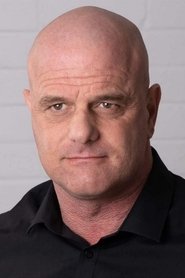 NamePeter CoeCharacterClub Doorman (uncredited)
NamePeter CoeCharacterClub Doorman (uncredited) -
 NameEllis Crewe-CandyCharacter1970's Concert Fan (uncredited)
NameEllis Crewe-CandyCharacter1970's Concert Fan (uncredited) -
 NameAdrian DanilaCharacterLive Aid Photographer (uncredited)
NameAdrian DanilaCharacterLive Aid Photographer (uncredited) -
 NameRochelle De-TervilleCharacterPassenger / Rio (uncredited)
NameRochelle De-TervilleCharacterPassenger / Rio (uncredited) -
 NameSteffan DonnellyCharacterJoe (uncredited)
NameSteffan DonnellyCharacterJoe (uncredited) -
 NameChris EcobCharacterLive Aid Crowd (uncredited)
NameChris EcobCharacterLive Aid Crowd (uncredited) -
 NameAmor EvansCharacterGirl in Pub (uncredited)
NameAmor EvansCharacterGirl in Pub (uncredited) -
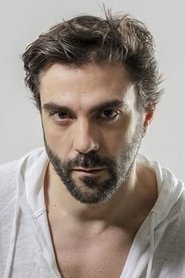 NameJesús GalloCharacterVIP Backstage Guest (uncredited)
NameJesús GalloCharacterVIP Backstage Guest (uncredited) -
 NameCarla GarrattCharacterMary Austin's Friend (uncredited)
NameCarla GarrattCharacterMary Austin's Friend (uncredited) -
 NameFlora GrantCharacterTour Bus Girl (uncredited)
NameFlora GrantCharacterTour Bus Girl (uncredited) -
 NameShane GriffinCharacterFreddie's Friend (uncredited)
NameShane GriffinCharacterFreddie's Friend (uncredited) -
 NameRishi GuptaCharacterMetal Worker (uncredited)
NameRishi GuptaCharacterMetal Worker (uncredited) -
 NameJames HareCharacterLive Aid Concert Goer (uncredited)
NameJames HareCharacterLive Aid Concert Goer (uncredited) -
 NameIan HarrodCharacterPress at Live Aid (uncredited)
NameIan HarrodCharacterPress at Live Aid (uncredited) -
 NameLeo HunterCharacterFreddie's Friend (uncredited)
NameLeo HunterCharacterFreddie's Friend (uncredited) -
 NameTimothy Christian JansenCharacter1970's Concert Fan (uncredited)
NameTimothy Christian JansenCharacter1970's Concert Fan (uncredited) -
 NameSammy JohnstonCharacterCrowd Member (uncredited)
NameSammy JohnstonCharacterCrowd Member (uncredited) -
 NameMark KempsonCharacterLive Aid Wembley Security (uncredited)
NameMark KempsonCharacterLive Aid Wembley Security (uncredited) -
 NameDoug KirbyCharacterFreddie's Live Aid Cam Operator (uncredited)
NameDoug KirbyCharacterFreddie's Live Aid Cam Operator (uncredited) -
 NameLex LampreyCharacterMadison Square Garden Concert Goer (uncredited)
NameLex LampreyCharacterMadison Square Garden Concert Goer (uncredited) -
 NameJorge LeonCharacterRoadie (uncredited)
NameJorge LeonCharacterRoadie (uncredited) -
 NameIan MansfieldCharacterLive Aid TV Camera Operator (uncredited)
NameIan MansfieldCharacterLive Aid TV Camera Operator (uncredited) -
 NameKas MeghaniCharacterPub Goer (uncredited)
NameKas MeghaniCharacterPub Goer (uncredited) -
 NameAlicia Mencía CastañoCharacterBrazilian Maid (uncredited)
NameAlicia Mencía CastañoCharacterBrazilian Maid (uncredited) -
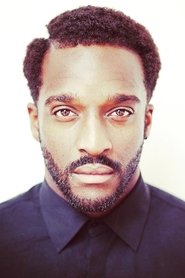 NamePhilips NorteyCharacterMeat Packer Manager (uncredited)
NamePhilips NorteyCharacterMeat Packer Manager (uncredited) -
 NameJose PalmaCharacterParty Guest (uncredited)
NameJose PalmaCharacterParty Guest (uncredited) -
 NameRichard PriceCharacterLeather Fetish at MineShaft & Houseparty (uncredited)
NameRichard PriceCharacterLeather Fetish at MineShaft & Houseparty (uncredited) -
 NameJason RedshawCharacterConcert Goer (uncredited)
NameJason RedshawCharacterConcert Goer (uncredited) -
 NameGraham J. ReevesCharacterAirline Passenger (uncredited)
NameGraham J. ReevesCharacterAirline Passenger (uncredited) -
 NameJonathan Rushby-TaylorCharacterFreddie's Lover (uncredited)
NameJonathan Rushby-TaylorCharacterFreddie's Lover (uncredited) -
 NameFreddie RydeCharacterConcert Guest (uncredited)
NameFreddie RydeCharacterConcert Guest (uncredited) -
 NameLinus ScheithauerCharacterPaul's Friend (uncredited)
NameLinus ScheithauerCharacterPaul's Friend (uncredited) -
 NameBobby ShueCharacterQueen Fan (uncredited)
NameBobby ShueCharacterQueen Fan (uncredited) -
 NameLee SimmonsCharacterClub Doorman (uncredited)
NameLee SimmonsCharacterClub Doorman (uncredited) -
 NameDave SimonCharacterMan in Pub (uncredited)
NameDave SimonCharacterMan in Pub (uncredited) -
 NameAmanda SmithCharacterConcert Goer (uncredited)
NameAmanda SmithCharacterConcert Goer (uncredited) -
 NameWinson TingCharacterMannequin (uncredited)
NameWinson TingCharacterMannequin (uncredited) -
 NameStuart WhelanCharacterConcert Goer (uncredited)
NameStuart WhelanCharacterConcert Goer (uncredited) -
 NameAidan WhiteCharacterMel Smith (uncredited)
NameAidan WhiteCharacterMel Smith (uncredited) -
 NameSarah WoodruffCharacterEnglish Woman (uncredited)
NameSarah WoodruffCharacterEnglish Woman (uncredited) -
 NameMiroslav ZarubaCharacterSinging Russian Soldier (uncredited)
NameMiroslav ZarubaCharacterSinging Russian Soldier (uncredited) -
 NameJoanna ZwierzynskaCharacterConcert Girl (uncredited)
NameJoanna ZwierzynskaCharacterConcert Girl (uncredited) -
 NameKarl FarrerCharacterLive Aid Concert Goer (uncredited)
NameKarl FarrerCharacterLive Aid Concert Goer (uncredited)
-
 NameAnthony McCartenJobWriter
NameAnthony McCartenJobWriter -
 NameBryan SingerJobDirector
NameBryan SingerJobDirector -
 NameDonald SabourinJobLine Producer
NameDonald SabourinJobLine Producer -
 NameElliot GrahamJobEditor
NameElliot GrahamJobEditor -
 NameJohn OttmanJobEditor
NameJohn OttmanJobEditor -
 NameNewton Thomas SigelJobDirector of Photography
NameNewton Thomas SigelJobDirector of Photography -
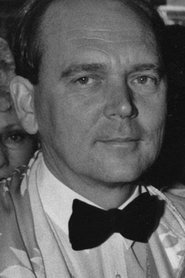 NameJim BeachJobProducer
NameJim BeachJobProducer -
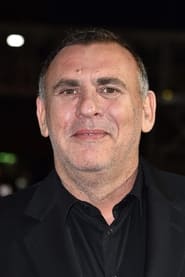 NameGraham KingJobProducer
NameGraham KingJobProducer -
 NameBryan SingerJobProducer
NameBryan SingerJobProducer -
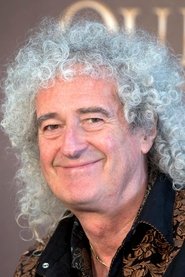 NameBrian MayJobProducer
NameBrian MayJobProducer -
 NameDenis O'SullivanJobExecutive Producer
NameDenis O'SullivanJobExecutive Producer -
 NameJane RosenthalJobExecutive Producer
NameJane RosenthalJobExecutive Producer -
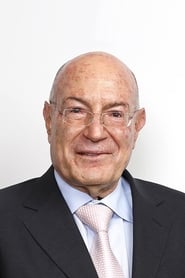 NameArnon MilchanJobExecutive Producer
NameArnon MilchanJobExecutive Producer -
 NameJulian DayJobCostume Design
NameJulian DayJobCostume Design -
 NameAaron HayeJobProduction Design
NameAaron HayeJobProduction Design -
 NameDavid HindleJobSupervising Art Director
NameDavid HindleJobSupervising Art Director -
 NameHannah MoseleyJobArt Direction
NameHannah MoseleyJobArt Direction -
 NameAlice SuttonJobArt Direction
NameAlice SuttonJobArt Direction -
 NameRichard HewittJobCo-Producer
NameRichard HewittJobCo-Producer -
 NamePeter OberthJobProducer
NamePeter OberthJobProducer -
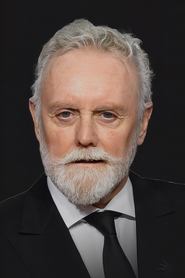 NameRoger TaylorJobProducer
NameRoger TaylorJobProducer -
 NameBrian MayJobMusic Producer
NameBrian MayJobMusic Producer -
 NameRoger TaylorJobMusic Producer
NameRoger TaylorJobMusic Producer -
 NameBecky BenthamJobMusic Supervisor
NameBecky BenthamJobMusic Supervisor -
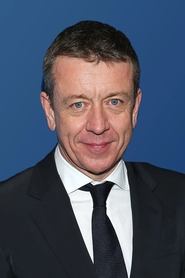 NamePeter MorganJobStory
NamePeter MorganJobStory -
 NameAnthony McCartenJobStory
NameAnthony McCartenJobStory -
 NameSusie FiggisJobCasting
NameSusie FiggisJobCasting -
 NameAnna Lynch-RobinsonJobSet Decoration
NameAnna Lynch-RobinsonJobSet Decoration -
 NameClaire FraynJobThird Assistant Director
NameClaire FraynJobThird Assistant Director -
 NameJack RavenscroftJobFirst Assistant Director
NameJack RavenscroftJobFirst Assistant Director -
 NameDexter FletcherJobExecutive Producer
NameDexter FletcherJobExecutive Producer -
 NameAnnabelle HoodJobProduction Assistant
NameAnnabelle HoodJobProduction Assistant -
 NameAlistair HawkinsJobSound Effects Editor
NameAlistair HawkinsJobSound Effects Editor -
 NameAndy KennedyJobSound Effects Editor
NameAndy KennedyJobSound Effects Editor -
 NameAlastair SirkettJobSound Effects Editor
NameAlastair SirkettJobSound Effects Editor -
 NameJohn WarhurstJobSupervising Sound Editor
NameJohn WarhurstJobSupervising Sound Editor -
 NamePaul MasseyJobSound Re-Recording Mixer
NamePaul MasseyJobSound Re-Recording Mixer -
 NameJenny BasenJobVisual Effects Producer
NameJenny BasenJobVisual Effects Producer -
 NameTim FieldJobVisual Effects Producer
NameTim FieldJobVisual Effects Producer -
 NameCarl GrinterJobVisual Effects Producer
NameCarl GrinterJobVisual Effects Producer -
 NameBecky RobertsJobVisual Effects Producer
NameBecky RobertsJobVisual Effects Producer -
 NamePaul NorrisJobVisual Effects Supervisor
NamePaul NorrisJobVisual Effects Supervisor -
 NameSian EvansJobCostume Supervisor
NameSian EvansJobCostume Supervisor -
 NameCharlotte HutchingsJobAssistant Art Director
NameCharlotte HutchingsJobAssistant Art Director -
 NameOlly WilliamsJobAssistant Art Director
NameOlly WilliamsJobAssistant Art Director -
 NameClaire ShakespeareJobArt Direction
NameClaire ShakespeareJobArt Direction -
 NameMarco Anton RestivoJobArt Direction
NameMarco Anton RestivoJobArt Direction -
 NameRachel AultonJobStandby Art Director
NameRachel AultonJobStandby Art Director -
 NameValentina RomanoJobArt Department Coordinator
NameValentina RomanoJobArt Department Coordinator -
 NameJo HawthorneJobConstruction Manager
NameJo HawthorneJobConstruction Manager -
 NameTerry WoodsJobProperty Master
NameTerry WoodsJobProperty Master -
 NameDouglas IngramJobStoryboard Artist
NameDouglas IngramJobStoryboard Artist -
 NameHamish Doyne-DitmasJobCamera Operator
NameHamish Doyne-DitmasJobCamera Operator -
 NamePeter RobertsonJobCamera Operator
NamePeter RobertsonJobCamera Operator -
 NameAdam SculthorpJobAerial Camera
NameAdam SculthorpJobAerial Camera -
 NameDani RoseJobDrone Pilot
NameDani RoseJobDrone Pilot -
 NameTom CampbellJobElectrician
NameTom CampbellJobElectrician -
 NameSeth CrosbyJobElectrician
NameSeth CrosbyJobElectrician -
 NameRyan TaggartJobFirst Assistant Camera
NameRyan TaggartJobFirst Assistant Camera -
 NameFrancesco FerrariJobFirst Assistant Camera
NameFrancesco FerrariJobFirst Assistant Camera -
 NameIan CoffeyJobFirst Assistant Camera
NameIan CoffeyJobFirst Assistant Camera -
 NameMichael GreenJobFocus Puller
NameMichael GreenJobFocus Puller -
 NameLee WaltersJobGaffer
NameLee WaltersJobGaffer -
 NameCallum WattJobGrip
NameCallum WattJobGrip -
 NameGary HutchingsJobKey Grip
NameGary HutchingsJobKey Grip -
 NameSean RogersJobLibra Head Technician
NameSean RogersJobLibra Head Technician -
 NameJamie BruceJobLighting Technician
NameJamie BruceJobLighting Technician -
 NameNanu SegalJobSecond Unit Director of Photography
NameNanu SegalJobSecond Unit Director of Photography -
 NameRina YangJobSecond Unit Director of Photography
NameRina YangJobSecond Unit Director of Photography -
 NamePeter RobertsonJobSteadicam Operator
NamePeter RobertsonJobSteadicam Operator -
 NameAlex BaileyJobStill Photographer
NameAlex BaileyJobStill Photographer -
 NameAlice StevensJobElectrician
NameAlice StevensJobElectrician -
 NameKirsty KinnearJobCasting Associate
NameKirsty KinnearJobCasting Associate -
 NameJan SewellJobHair Designer
NameJan SewellJobHair Designer -
 NameRenata GilbertJobHair Supervisor
NameRenata GilbertJobHair Supervisor -
 NameRebecca ColeJobHair Supervisor
NameRebecca ColeJobHair Supervisor -
 NameJulio ParodiJobKey Hair Stylist
NameJulio ParodiJobKey Hair Stylist -
 NameLuisa RidgeJobMakeup & Hair
NameLuisa RidgeJobMakeup & Hair -
 NameCharlie HounslowJobMakeup & Hair
NameCharlie HounslowJobMakeup & Hair -
 NameLouie ZakarianJobMakeup & Hair
NameLouie ZakarianJobMakeup & Hair -
 NameValter CasottoJobProsthetic Makeup Artist
NameValter CasottoJobProsthetic Makeup Artist -
 NameLove LarsonJobProsthetic Makeup Artist
NameLove LarsonJobProsthetic Makeup Artist -
 NameEva von BahrJobProsthetic Makeup Artist
NameEva von BahrJobProsthetic Makeup Artist -
 NameDavid MalinowskiJobProsthetic Makeup Artist
NameDavid MalinowskiJobProsthetic Makeup Artist -
 NameEmma StokesJobCostumer
NameEmma StokesJobCostumer -
 NameNadia MerabtiJobPrincipal Costumer
NameNadia MerabtiJobPrincipal Costumer -
 NameKate LaverJobSet Costumer
NameKate LaverJobSet Costumer -
 NameSascha DhillonJobAssociate Editor
NameSascha DhillonJobAssociate Editor -
 NameGreg FisherJobColorist
NameGreg FisherJobColorist -
 NameDoychin MargoevskiJobColorist
NameDoychin MargoevskiJobColorist -
 NameDanielle El-HendiJobFirst Assistant Editor
NameDanielle El-HendiJobFirst Assistant Editor -
 NameGareth ParryJobOnline Editor
NameGareth ParryJobOnline Editor -
 NameCharlotte WrightJobLocation Manager
NameCharlotte WrightJobLocation Manager -
 NameJohn W. WheatleyJobMusic Consultant
NameJohn W. WheatleyJobMusic Consultant -
 NameJonathan ConnaughtJobMusic Coordinator
NameJonathan ConnaughtJobMusic Coordinator -
 NameNeil StempJobMusic Editor
NameNeil StempJobMusic Editor -
 NameJohn WarhurstJobSupervising Music Editor
NameJohn WarhurstJobSupervising Music Editor -
 NameJon BakerJobArmorer
NameJon BakerJobArmorer -
 NameSam DormerJobArmorer
NameSam DormerJobArmorer -
 NameDino FazzaniJobArmorer
NameDino FazzaniJobArmorer -
 NameLiam McCartneyJobArmorer
NameLiam McCartneyJobArmorer -
 NameCatherine FrancisJobAssistant Accountant
NameCatherine FrancisJobAssistant Accountant -
 NameMaria Fernanda LlamosaJobAssistant Accountant
NameMaria Fernanda LlamosaJobAssistant Accountant -
 NameHayleigh RobertsJobAssistant Production Coordinator
NameHayleigh RobertsJobAssistant Production Coordinator -
 NameValerie RoseJobAssistant Production Coordinator
NameValerie RoseJobAssistant Production Coordinator -
 NameIona WestlakeJobAssistant Production Coordinator
NameIona WestlakeJobAssistant Production Coordinator -
 NameWilliam ConacherJobDialect Coach
NameWilliam ConacherJobDialect Coach -
 NameHugh O'SheaJobDialect Coach
NameHugh O'SheaJobDialect Coach -
 NameNick TrumbleJobDialect Coach
NameNick TrumbleJobDialect Coach -
 NameAlex KerrJobFirst Assistant Accountant
NameAlex KerrJobFirst Assistant Accountant -
 NameSarah LyallJobPayroll Accountant
NameSarah LyallJobPayroll Accountant -
 NameMaryllis GonzalezJobPayroll Accountant
NameMaryllis GonzalezJobPayroll Accountant -
 NamePaul B. GibbsJobProduction Accountant
NamePaul B. GibbsJobProduction Accountant -
 NameFraser GrantJobProduction Accountant
NameFraser GrantJobProduction Accountant -
 NameOliver BrownJobProduction Assistant
NameOliver BrownJobProduction Assistant -
 NameCarmen MarinaJobProduction Assistant
NameCarmen MarinaJobProduction Assistant -
 NameCharles RedifJobProduction Assistant
NameCharles RedifJobProduction Assistant -
 NameDougal Mackenzie SmithJobProduction Assistant
NameDougal Mackenzie SmithJobProduction Assistant -
 NameJosephina van LeeuwenJobProduction Assistant
NameJosephina van LeeuwenJobProduction Assistant -
 NameAdele StewardJobProduction Coordinator
NameAdele StewardJobProduction Coordinator -
 NameNicola BiselloJobProduction Secretary
NameNicola BiselloJobProduction Secretary -
 NameDanielle RogersJobProduction Secretary
NameDanielle RogersJobProduction Secretary -
 NameJo SeagerJobProduction Secretary
NameJo SeagerJobProduction Secretary -
 NameDennis EleveldJobResearcher
NameDennis EleveldJobResearcher -
 NameRowena LadburyJobScript Supervisor
NameRowena LadburyJobScript Supervisor -
 NameCathy DoubledayJobScript Supervisor
NameCathy DoubledayJobScript Supervisor -
 NameAvril KissJobUnit Medic
NameAvril KissJobUnit Medic -
 NameMoira HoulihanJobUnit Publicist
NameMoira HoulihanJobUnit Publicist -
 NameBen HicksJob2D Supervisor
NameBen HicksJob2D Supervisor -
 NameKarnati AvinashJob3D Artist
NameKarnati AvinashJob3D Artist -
 NameImran Ahmed RaichuriJob3D Artist
NameImran Ahmed RaichuriJob3D Artist -
 NameVishnu SimhaJob3D Modeller
NameVishnu SimhaJob3D Modeller -
 NameAkshay VichareJobLighting Supervisor
NameAkshay VichareJobLighting Supervisor -
 NameWesley VetJobMatchmove Supervisor
NameWesley VetJobMatchmove Supervisor -
 NameNeha SinghJobModeling
NameNeha SinghJobModeling -
 NameAnkur SinghJobModeling
NameAnkur SinghJobModeling -
 NameJason McDonaldJobPre-Visualization Supervisor
NameJason McDonaldJobPre-Visualization Supervisor -
 NameGeorgia BenjaminJobVisual Effects Coordinator
NameGeorgia BenjaminJobVisual Effects Coordinator -
 NameSimona De AngelisJobVisual Effects Coordinator
NameSimona De AngelisJobVisual Effects Coordinator -
 NameKeerthinivasan KrishnamurthyJobVisual Effects Coordinator
NameKeerthinivasan KrishnamurthyJobVisual Effects Coordinator -
 NameNell Lloyd-MalcolmJobVisual Effects Coordinator
NameNell Lloyd-MalcolmJobVisual Effects Coordinator -
 NamePaige AndrewsJobVisual Effects Coordinator
NamePaige AndrewsJobVisual Effects Coordinator -
 NamePhil EldridgeJobVisual Effects Editor
NamePhil EldridgeJobVisual Effects Editor -
 NameJoseph FarrantJobVisual Effects Editor
NameJoseph FarrantJobVisual Effects Editor -
 NameJames NooraniJobVisual Effects Editor
NameJames NooraniJobVisual Effects Editor -
 NameHalley DochertyJobVisual Effects Editor
NameHalley DochertyJobVisual Effects Editor -
 NameVasilis KaratzivaJobVisual Effects Production Manager
NameVasilis KaratzivaJobVisual Effects Production Manager -
 NameBalendu KurupJobVisual Effects Production Manager
NameBalendu KurupJobVisual Effects Production Manager -
 NameVictoria RankJobVisual Effects Production Assistant
NameVictoria RankJobVisual Effects Production Assistant -
 NameAna GrgicJobVisual Effects Supervisor
NameAna GrgicJobVisual Effects Supervisor -
 NameMark CoulierJobProsthetic Supervisor
NameMark CoulierJobProsthetic Supervisor -
 NameTim CavaginJobSound Re-Recording Mixer
NameTim CavaginJobSound Re-Recording Mixer -
 NameJohn CasaliJobProduction Sound Mixer
NameJohn CasaliJobProduction Sound Mixer -
 NameKirsty MartinJobHairstylist
NameKirsty MartinJobHairstylist -
 NameMadlen MierzwiakJobHairstylist
NameMadlen MierzwiakJobHairstylist -
 NameMarzenna Fus-MickiewiczJobMakeup Artist
NameMarzenna Fus-MickiewiczJobMakeup Artist -
 NameDaniela CazmalJobCostume Assistant
NameDaniela CazmalJobCostume Assistant -
 NameGrace ClarkJobCostume Assistant
NameGrace ClarkJobCostume Assistant -
 NameVeridiana FerrazJobCostume Assistant
NameVeridiana FerrazJobCostume Assistant -
 NameCharles GilliesJobCostume Assistant
NameCharles GilliesJobCostume Assistant -
 NameChloe HollandJobCostume Assistant
NameChloe HollandJobCostume Assistant -
 NameTalulah MasonJobCostume Assistant
NameTalulah MasonJobCostume Assistant -
 NameStacey Clare RichardsJobCostume Assistant
NameStacey Clare RichardsJobCostume Assistant -
 NameJames ShuttleworthJobCostume Assistant
NameJames ShuttleworthJobCostume Assistant -
 NameKieron StoneJobCostume Assistant
NameKieron StoneJobCostume Assistant -
 NameRosie StowardJobCostume Assistant
NameRosie StowardJobCostume Assistant -
 NameMaria SmithJobCostumer
NameMaria SmithJobCostumer -
 NameSarah DuttonJobCostumer
NameSarah DuttonJobCostumer -
 NameYanika WatersJobWardrobe Supervisor
NameYanika WatersJobWardrobe Supervisor -
 NameLucie BarbierJobColor Assistant
NameLucie BarbierJobColor Assistant -
 NameShing Hong ChanJobColor Assistant
NameShing Hong ChanJobColor Assistant -
 NameChris FrancisJobColor Assistant
NameChris FrancisJobColor Assistant -
 NameJonas JangvadJobColor Assistant
NameJonas JangvadJobColor Assistant -
 NameAaron CootJobDailies Operator
NameAaron CootJobDailies Operator -
 NameJohn A. MaltbyJobDailies Operator
NameJohn A. MaltbyJobDailies Operator -
 NameJonathan SmilesJobDailies Technician
NameJonathan SmilesJobDailies Technician -
 NameLeigh MyersJobDigital Intermediate
NameLeigh MyersJobDigital Intermediate -
 NameSacha JonesJobAdditional First Assistant Camera
NameSacha JonesJobAdditional First Assistant Camera -
 NameRussel TorodeJobAdditional Second Assistant Camera
NameRussel TorodeJobAdditional Second Assistant Camera -
 NameAshlea Tamara DownesJobAssistant Camera
NameAshlea Tamara DownesJobAssistant Camera -
 NameNick RayJobBest Boy Grip
NameNick RayJobBest Boy Grip -
 NameJames CroninJobBTS Photographer
NameJames CroninJobBTS Photographer -
 NameDan CarlingJobDigital Imaging Technician
NameDan CarlingJobDigital Imaging Technician -
 NameChris BelcherJobDigital Imaging Technician
NameChris BelcherJobDigital Imaging Technician -
 NameOliver Hadlow-MartinJobDigital Imaging Technician
NameOliver Hadlow-MartinJobDigital Imaging Technician -
 NameAndy EdridgeJobDolly Grip
NameAndy EdridgeJobDolly Grip -
 NameIonut ApetroaeJobElectrician
NameIonut ApetroaeJobElectrician -
 NameJames Paul ThomasJobSecond Assistant Camera
NameJames Paul ThomasJobSecond Assistant Camera -
 NameMaiya RoseJobSecond Assistant Camera
NameMaiya RoseJobSecond Assistant Camera -
 NameTara KelleherJobArt Department Assistant
NameTara KelleherJobArt Department Assistant -
 NameNeneh LuciaJobArt Department Assistant
NameNeneh LuciaJobArt Department Assistant -
 NameImogen McGrathJobArt Department Assistant
NameImogen McGrathJobArt Department Assistant -
 NameWarren ParkinsonJobAssistant Property Master
NameWarren ParkinsonJobAssistant Property Master -
 NameDalia GellertJobAssistant Set Decoration
NameDalia GellertJobAssistant Set Decoration -
 NameLotty SannaJobAssistant Set Decoration
NameLotty SannaJobAssistant Set Decoration -
 NameToby BellchambersJobCarpenter
NameToby BellchambersJobCarpenter -
 NameMarcus EhrenJobCarpenter
NameMarcus EhrenJobCarpenter -
 NameMark WilkinsonJobCarpenter
NameMark WilkinsonJobCarpenter -
 NameHannah KonsJobGraphic Designer
NameHannah KonsJobGraphic Designer -
 NameCarly MasonJobGraphic Designer
NameCarly MasonJobGraphic Designer -
 NameChristopher WaughJobGreensman
NameChristopher WaughJobGreensman -
 NameGary DempseyJobPainter
NameGary DempseyJobPainter -
 NamePaul GunnerJobPainter
NamePaul GunnerJobPainter -
 NameJames FlanaganJobProps
NameJames FlanaganJobProps -
 NameLee IllingworthJobProps
NameLee IllingworthJobProps -
 NameLuke A.D. SaeleJobProps
NameLuke A.D. SaeleJobProps -
 NameJohn W. WheatleyJobProps
NameJohn W. WheatleyJobProps -
 NameConor MaclayJobSet Dresser
NameConor MaclayJobSet Dresser -
 NameSimon HutchingsJobStandby Painter
NameSimon HutchingsJobStandby Painter -
 NameJames WaddinghamJobSupervising Carpenter
NameJames WaddinghamJobSupervising Carpenter -
 NameFrank CollinsJobSupervising Carpenter
NameFrank CollinsJobSupervising Carpenter -
 NameLucy HoweJobSet Decoration
NameLucy HoweJobSet Decoration -
 NameSarah WhiteJobSet Decoration
NameSarah WhiteJobSet Decoration -
 NameMark HoltJobSpecial Effects Supervisor
NameMark HoltJobSpecial Effects Supervisor -
 NameAdrian BennettJobSpecial Effects Technician
NameAdrian BennettJobSpecial Effects Technician -
 NameEmily FisherJobSpecial Effects Technician
NameEmily FisherJobSpecial Effects Technician -
 NameTim HamptonJobSpecial Effects Technician
NameTim HamptonJobSpecial Effects Technician -
 NameThomas LloydJobSpecial Effects Technician
NameThomas LloydJobSpecial Effects Technician -
 NameMark WeatherbeJobSpecial Effects Technician
NameMark WeatherbeJobSpecial Effects Technician -
 NameMiloš MiloševićJobCompositing Supervisor
NameMiloš MiloševićJobCompositing Supervisor -
 NameChris ClarkeJobVFX Director of Photography
NameChris ClarkeJobVFX Director of Photography -
 NameSullivan RichardJobMatte Painter
NameSullivan RichardJobMatte Painter -
 NameTom WhiteJobSecond Unit First Assistant Director
NameTom WhiteJobSecond Unit First Assistant Director -
 NameZoe LiangJobSecond Unit First Assistant Director
NameZoe LiangJobSecond Unit First Assistant Director -
 NameGayle DickieJobSecond Assistant Director
NameGayle DickieJobSecond Assistant Director -
 NameSam RookJobSecond Assistant Director
NameSam RookJobSecond Assistant Director -
 NameKatrina Mense-ChaseJobAssistant Director
NameKatrina Mense-ChaseJobAssistant Director -
 NameJamie GrahamJobThird Assistant Director
NameJamie GrahamJobThird Assistant Director -
 NameNiv AdiriJobAdditional Sound Re-Recording Mixer
NameNiv AdiriJobAdditional Sound Re-Recording Mixer -
 NameLizzie Campbell-KellyJobADR Coordinator
NameLizzie Campbell-KellyJobADR Coordinator -
 NameMark ApplebyJobADR Mixer
NameMark ApplebyJobADR Mixer -
 NameGeorge AtkinsJobADR Mixer
NameGeorge AtkinsJobADR Mixer -
 NameLinda BrenonJobADR Mixer
NameLinda BrenonJobADR Mixer -
 NameRory de CarteretJobADR Mixer
NameRory de CarteretJobADR Mixer -
 NameGibran FarrahJobADR Mixer
NameGibran FarrahJobADR Mixer -
 NameMike TehraniJobADR Mixer
NameMike TehraniJobADR Mixer -
 NameMark DeSimoneJobADR Mixer
NameMark DeSimoneJobADR Mixer -
 NameKristin CatuognoJobADR Recordist
NameKristin CatuognoJobADR Recordist -
 NameHarry JonesJobADR Recordist
NameHarry JonesJobADR Recordist -
 NameLottie WadeJobADR Recordist
NameLottie WadeJobADR Recordist -
 NameLouise BurtonJobAssistant Sound Editor
NameLouise BurtonJobAssistant Sound Editor -
 NameJens Rosenlund PetersenJobDialogue Editor
NameJens Rosenlund PetersenJobDialogue Editor -
 NamePeter BurgisJobFoley Artist
NamePeter BurgisJobFoley Artist -
 NameZoe FreedJobFoley Artist
NameZoe FreedJobFoley Artist -
 NameAdam BourneJobFoley Editor
NameAdam BourneJobFoley Editor -
 NameGlen GathardJobFoley Mixer
NameGlen GathardJobFoley Mixer -
 NameJemma Riley-TolchJobFoley Mixer
NameJemma Riley-TolchJobFoley Mixer -
 NameTom MellingJobSound Mix Technician
NameTom MellingJobSound Mix Technician -
 NameWilliam MillerJobSound Mix Technician
NameWilliam MillerJobSound Mix Technician -
 NameAlan MacFeelyJobSound Mixer
NameAlan MacFeelyJobSound Mixer -
 NameNina HartstoneJobSupervising ADR Editor
NameNina HartstoneJobSupervising ADR Editor -
 NameNina HartstoneJobSupervising Dialogue Editor
NameNina HartstoneJobSupervising Dialogue Editor -
 NameThomas Phillips-HowardJobAnimation
NameThomas Phillips-HowardJobAnimation -
 NameVanessa BakerJobADR Voice Casting
NameVanessa BakerJobADR Voice Casting -
 NameMadison WestwoodJobAssistant Music Supervisor
NameMadison WestwoodJobAssistant Music Supervisor -
 NameMatt CurtisJobTitle Designer
NameMatt CurtisJobTitle Designer -
 NameMelisa RodopJobSet Production Assistant
NameMelisa RodopJobSet Production Assistant -
 NameMichael SchaeferJobProduction Executive
NameMichael SchaeferJobProduction Executive -
 NameJannika ÖbergJobProduction Coordinator
NameJannika ÖbergJobProduction Coordinator -
 NameGrace JamesJobSet Production Assistant
NameGrace JamesJobSet Production Assistant -
 NameBárbara Morelos-ZaragozaJobTranslator
NameBárbara Morelos-ZaragozaJobTranslator -
 NameJoceline AndrewsJobMakeup Artist
NameJoceline AndrewsJobMakeup Artist -
 NameCharlie HounslowJobMakeup Artist
NameCharlie HounslowJobMakeup Artist -
 NameLisa IslesJobMakeup Artist
NameLisa IslesJobMakeup Artist -
 NameHeather MansonJobMakeup Artist
NameHeather MansonJobMakeup Artist -
 NameNataša NikolićJobMakeup Artist
NameNataša NikolićJobMakeup Artist -
 NameSara RaeburnJobMakeup Artist
NameSara RaeburnJobMakeup Artist -
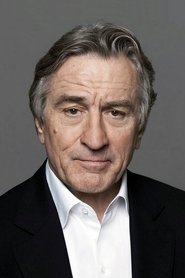 NameRobert De NiroJobExecutive Producer
NameRobert De NiroJobExecutive Producer -
 NameJosh WestonJobProsthetic Makeup Artist
NameJosh WestonJobProsthetic Makeup Artist -
 NameChris BarnettJobAssistant Unit Manager
NameChris BarnettJobAssistant Unit Manager -
 NameJosie MorganJobThird Assistant Director
NameJosie MorganJobThird Assistant Director -
 NameJack BellJobVisual Effects Assistant Editor
NameJack BellJobVisual Effects Assistant Editor
-
Trailer
-
Trailer
-
Trailer
-
Trailer
-
Trailer
-
Clip
-
Clip
-
Clip
-
Teaser
-
Teaser
-
Featurette
-
Featurette
-
Featurette
-
Featurette
-
Featurette
-
Featurette
-
Featurette
-
Featurette
-
Featurette











